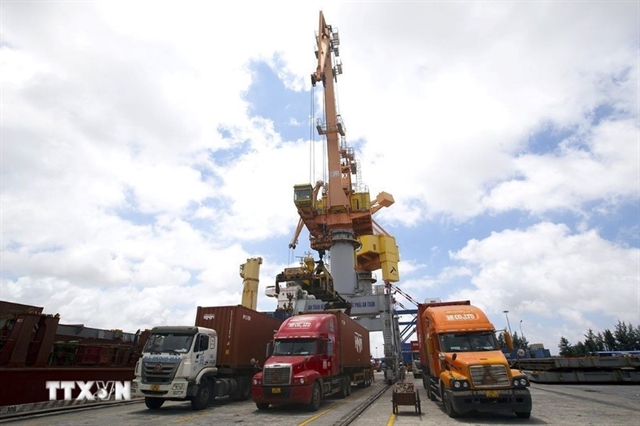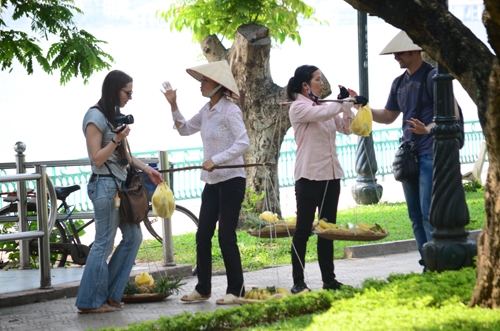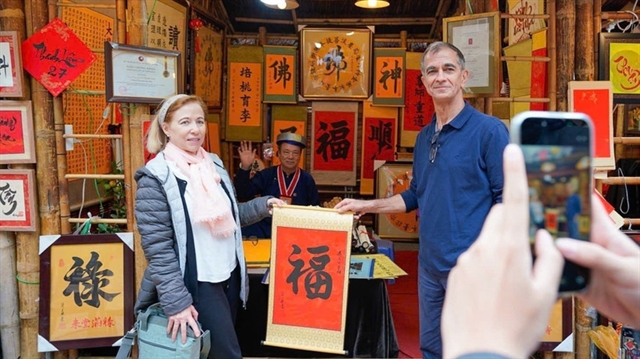 Society
Society

Hà Nội needs a long term-plan to tackle tourist scams – an effort that will require the entire society’s involvement, a local tourism management official said.
 |
| Hà Nội needs a long term-plan to tackle tourist scams – an effort that will require the entire society’s involvement, a local tourism management official said.— Photo hanoimoi.vn |
HÀ NỘI — Hà Nội needs a long term-plan to tackle tourist scams – an effort that will require the entire society’s involvement, a local tourism management official said.
And it is not just a problem in the capital city. Deputy Prime Minister Vũ Đức Đam said that overcharging has become a big concern among foreign tourists visiting Việt Nam.
In many tourism spots across the country, tourists usually face higher prices than normal when buying souvenirs or paying for services.
Many taxi drivers reportedly take a longer route to overcharge passengers. Female vendors with carrying poles on their shoulders and conical hats invite travellers to take photos of them, then demand money.
Hà Nội is a big tourism hub of the country. In the first four months of this year, the capital city welcomed 5.6 million tourists, including more than one million foreigners, a significant year-on-year increase of 25 per cent, according to Hà Nội’s Tourism Department.
The rapid tourism growth of the city has motivated local authorities to step up efforts in cracking down on scams.
Hotline number 0941.336677 launched recently to allow tourists to report any scams to the municipal Tourism Department.
The authorities have also responded promptly to tourist scams reported in the city.
Last year, two days after an online newspaper reported that shoe shiners in the Old Quarter overcharged tourists, the police immediately fined these scammers.
In April, three British tourists who were reportedly cheated by a hotel staff member received a refund.
According to Hà Văn Siêu, deputy head of the Việt Nam National Administration of Tourism, scamming stems from necessity and the fact that social policies do not cover people from all walks of life. Many people have to overcharge to earn enough money to cover daily expenses.
Local authorities must create jobs for this group of disadvantaged people and tighten control over residential areas to eliminate the root of bad behaviours, he said.
Another suggestion was to post photos of scammers on social networks to warn tourists.
Đỗ Đình Hồng, director of Hà Nội’s Tourism Department, said Hà Nội was looking to create a special tourism product under the purview of a tourism agency to eliminate overcharging when tourists visit the city. — VNS




